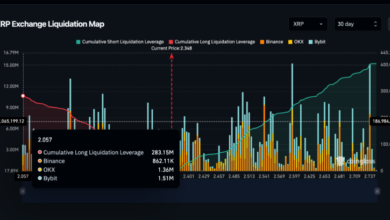How SIP Providers Boost Efficiency for Mutual Fund Investments

In today’s dynamic financial environment, clear and effective communication is crucial for businesses aiming to maximize their mutual fund investments. Systematic Investment Plans (SIPs), offered by various top stock brokers in India, like Zerodha, Rupeezy, Upstox, and also many other platforms provide structured strategies that align with corporate financial objectives. This article explores how SIP providers improve communication efficiency within enterprises, leading to better mutual fund management.
Understanding SIPs and Their Significance
Systematic Investment Plans (SIPs) are investment strategies where investors contribute fixed amounts to mutual funds at regular intervals. This disciplined approach ensures consistent capital deployment and provides businesses with a predictable investment schedule. This predictability aids in budgeting and financial planning, improving internal communication by facilitating clearer projections and more streamlined financial reporting.
Facilitating Cross-Departmental Coordination
Effective communication is essential for ensuring that investment strategies align with overall corporate objectives. SIP providers play a pivotal role here by offering transparent reporting and analytics tools. These tools empower stakeholders across departments—finance, operations, compliance—to access real-time investment data and performance metrics. Consequently, decision-making processes become more informed and collaborative, fostering a unified approach to mutual funds investments.
Enhancing Financial Planning and Reporting
Among the primary advantages SIPs offer enterprises is their capacity to streamline financial planning and reporting processes. By establishing regular investment schedules, SIPs provide structured frameworks that align with corporate budget cycles. This predictability enables finance teams to forecast cash flows effectively and allocate resources efficiently. Moreover, SIPs’ systematic nature simplifies tracking investment performance, thereby facilitating timely and accurate financial reporting.
Improving Investor Relations
Enterprises often manage investments for stakeholders like shareholders, employees, and external partners. SIPs contribute significantly to enhancing investor relations by promoting transparency and accountability in investment management. SIP providers offer customized reporting capabilities tailored to diverse stakeholder information needs. This transparency builds trust and confidence among investors, bolstering the enterprise’s overall financial stewardship perception.
Adapting to Regulatory Requirements
In today’s increasingly regulated financial environment, enterprises must navigate stringent compliance standards. SIP providers assist enterprises by ensuring investment strategies comply with applicable laws and regulations. Offering compliance-focused services and reporting features, SIP providers help enterprises mitigate regulatory risks and maintain operational integrity.
Case Study: Implementing SIPs in Enterprise Settings
To illustrate the practical benefits of SIPs in enhancing communication efficiency, consider a hypothetical multinational corporation (MNC) adopting SIPs for corporate treasury management. By integrating SIPs, the MNC gains enhanced visibility into its investment portfolio, enabling proactive decision-making and risk management. This structured approach also fosters improved communication among the treasury department and stakeholders, promoting a collaborative environment focused on achieving financial objectives.
Conclusion
In conclusion, SIP providers play a pivotal role in enhancing enterprise communication efficiency within mutual fund investments. By offering structured investment solutions, transparent reporting mechanisms, and compliance support, SIP providers empower enterprises to optimize investment strategies while maintaining robust communication channels. As financial markets evolve, integrating SIPs into corporate investment frameworks becomes increasingly essential for achieving sustainable growth and financial resilience.





